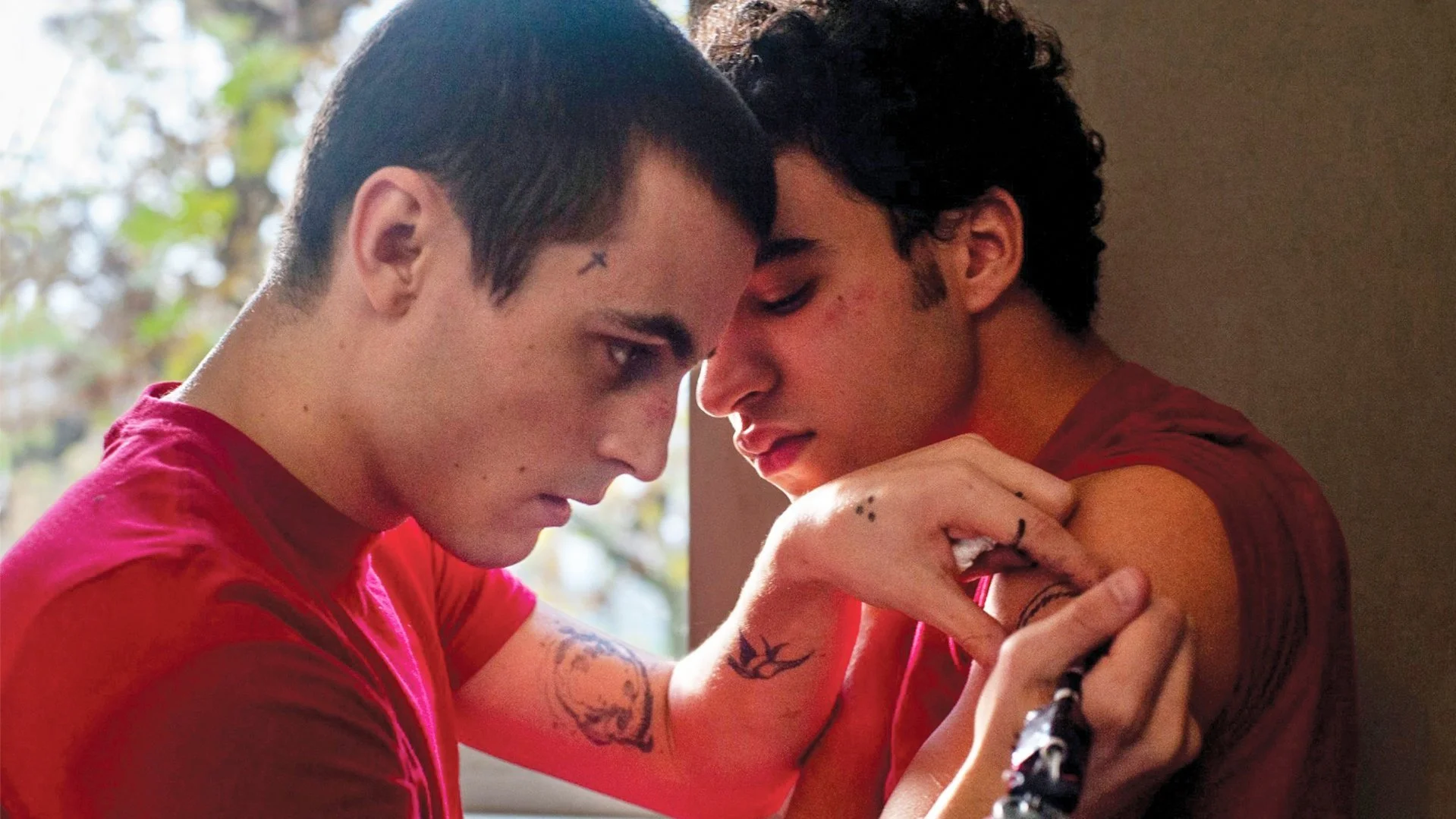The Lost Boys
Zeno Graton’s quiet, sincere debut portrays the lives of young men in a French juvenile detention centre.
The most striking aspect of this debut feature is the extent to which it reflects the individuality of the man who made it, Zeno Graton from Belgium. It does so on several levels. In addition to directing The Lost Boys, Graton wrote it with Clara Bourreau and one is immediately struck by the attitude that he adopts in portraying the film’s chief setting, a juvenile detention centre. The boys of the title are its inmates and nine times out of ten a filmmaker would choose to show a centre of this kind as a tough, violent place in which the staff would be largely unsympathetic and might well include a sadistic bully among them. Consequently, although Graton is far from being uncritical of the system (indeed the film was in part suggested by what a teenage cousin of his experienced in just such a setting), it is notable that he chooses to show those employed there, people such as Sophie (Eye Haidara) and Ilyas (Jonathan Couziné), as doing their best.
If that approach reveals Graton to be a tender filmmaker rather than a harsh one, it is also the case that in writing the story he makes an unusual choice for a first-time feature since the style he chooses is largely minimalistic. There is certainly a central focus – of which more in a moment – but Graton’s film concentrates on simply observing the day-to-day routine of these incarcerated youths. There are instructional classes, courses in metalwork and the like, sport of various kinds and opportunities to play billiards. When depicting all this short scenes are often favoured and, initially at least, the inmates seen are for the most part boys whose names we hear but whom we will only slowly come to identify individually. What is being expressed in a general way is life cut off from the outside world and just at a time when adolescents need that experience. Some do receive visitors from time to time, but The Lost Boys takes as its central characters two youths all too aware that they themselves have no family or friends who will come to see them.
As for the leading roles, they are taken by Khalil Ben Gharbia as Joe who is nearing the time when it should be recognised that he has done well enough to be released and by Julien De Saint Jean as William who has just arrived as a newcomer. In Joe’s case he is somebody whose family roots are in Tunisia and it is scarcely chance that the same applies to Zeno Graton himself. Regarding the way in which this picture is being sold, it is fair to say that it is promoted as a gay love story and that is certainly not an inappropriate description. But, quite apart from the fact that such a theme is not usually presented in what could be described as minimalist mode, Graton again adopts an approach here that is very much his own. His concern is to capture the emotion experienced when the two boys fall in love as opposed to taking the now more common course of introducing graphic sex scenes. Because of that, this is a film with no more than a ‘12A’ rating but Graton has nevertheless picked as his leads two players of real distinction who prove spot on when communicating the powerful sensual force that brings Joe and William together. Their skill is less surprising than it might otherwise have been because Khalil Ben Gharbia had a leading role in François Ozon’s Peter von Kant (2022) and Julien De Saint Jean was featured in Lie With Me (also 2022). The supporting players are well cast too, but it is something of a loss that the subsidiary figures are not more fully developed and are deliberately drawn without that much detail (Eye Haidara’s sympathetic Sophie is a case in point since we learn very little about her).
It is also due to the almost documentary-style minimalism and to the characteristic downgrading in dramatic terms of a bid to run away that The Lost Boys despite being a short feature (it comes in at 83 minutes) seems longer than it is. Even if we learn more about Joe and William than about the others here too some further elaboration would have been welcome. For one thing we learn little specific about the offences that led to them being sent to the centre. It should also be mentioned in passing that a tale heard at the start of the film (and later repeated) stands out too obviously as a self-conscious metaphor for the central situation (it concerns a child's discovery that he is wrong in thinking that a fish embedded in ice will in due course come to life again). However, Graton’s view of this system of correction and the damage done when its inmates are sent back into the world too little prepared and with a limited sense of any real future prospects comes over very effectively. Furthermore, any viewers drawn to The Lost Boys primarily for its love story will undoubtedly be well satisfied by the two leading actors.
Original title: Le paradis.
MANSEL STIMPSON
Cast: Khalil Ben Gharbia, Julien De Saint Jean, Eye Haidara, Jonathan Couzinié, Matéo Bastien, Samuel Di Napoli, Amine Hamidou, Nlandu Lubansu, Terry Ngoga, Laurence Oltuski, Audrey D’Hulstère.
Dir Zeno Graton, Pro Valérie Bournonville, Joseph Rouschop, Priscilla Bertin and Judith Nora, Screenplay Zeno Graton and Clara Bourreau, Ph Olivier Boonjing, Pro Des Guillaume Orain Audooren. Ed Nobuo Coste and Arnaud Batog, Music Bachar Mar-Khalifé, Costumes Tine Deseure.
Tarantula/Silex Films/Menuetto Film/VOO/Proximus-Peccadillo Pictures.
83 mins. Belgium/France. 2023. UK Rel: 15 December 2023. Cert. 12A.


